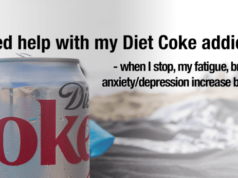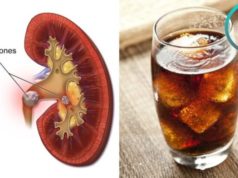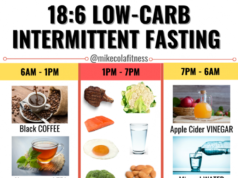Is Diet Pepsi caffeine free? This question often arises for those seeking a refreshing beverage without the stimulating effects of caffeine. While Diet Pepsi is known for its sugar-free formula, it does contain caffeine, albeit in a lower amount than its regular counterpart. This article delves into the world of Diet Pepsi, exploring its ingredients, caffeine content, and its impact on health, consumer preferences, and the market.
Understanding the caffeine content of Diet Pepsi is crucial for individuals who are sensitive to caffeine or seeking caffeine-free options. We will compare its caffeine levels to other popular beverages, including regular Pepsi, Coke, and coffee, providing a comprehensive perspective on its place in the caffeine landscape. Additionally, we will discuss the potential health implications of artificial sweeteners, such as aspartame, which are present in Diet Pepsi.
Diet Pepsi Ingredients and Caffeine Content
Diet Pepsi is a popular sugar-free soft drink that has become a staple in many households. It’s known for its crisp, refreshing taste and its lack of sugar, making it a popular choice for those looking for a lower-calorie alternative to regular soda.
Diet Pepsi Ingredients
The primary ingredients in Diet Pepsi include carbonated water, caramel color, phosphoric acid, aspartame, potassium benzoate, caffeine, natural flavors, and citric acid. Aspartame is an artificial sweetener that provides the sweetness without adding sugar. The caffeine in Diet Pepsi provides a stimulating effect, and the other ingredients contribute to the taste and overall flavor profile.
Caffeine Content of Diet Pepsi
Diet Pepsi contains 34 milligrams of caffeine per 12-ounce can. The caffeine in Diet Pepsi comes from the addition of caffeine to the beverage during the manufacturing process.
Caffeine Content Comparison, Is diet pepsi caffeine free
The caffeine content of Diet Pepsi is comparable to other popular beverages:
- Regular Pepsi contains 38 milligrams of caffeine per 12-ounce can.
- Coca-Cola contains 34 milligrams of caffeine per 12-ounce can.
- A cup of brewed coffee can contain anywhere from 80 to 180 milligrams of caffeine, depending on the brewing method and type of coffee beans used.
Health Implications of Diet Pepsi and Caffeine
Diet Pepsi, like other carbonated beverages, has both potential health benefits and risks associated with its consumption. These implications are largely tied to the presence of caffeine and artificial sweeteners, which are key components of the drink.
Caffeine’s Impact on Health
Caffeine is a stimulant that can have both positive and negative effects on the body.
- Potential Benefits:
- Improved alertness and focus: Caffeine can enhance cognitive function, boosting alertness and focus, particularly in the short term. This can be beneficial for tasks requiring mental concentration.
- Enhanced physical performance: Caffeine can improve athletic performance by increasing energy levels and delaying fatigue. It is often used by athletes to enhance endurance and strength.
- Reduced risk of certain diseases: Some studies suggest that moderate caffeine consumption may be associated with a reduced risk of developing certain chronic diseases, such as Parkinson’s disease, Alzheimer’s disease, and type 2 diabetes.
- Potential Risks:
- Anxiety and insomnia: Excessive caffeine intake can lead to anxiety, nervousness, restlessness, and difficulty sleeping. Individuals sensitive to caffeine may experience these effects even at moderate doses.
- Dependence and withdrawal: Regular caffeine consumption can lead to dependence, and abrupt cessation can result in withdrawal symptoms like headaches, fatigue, and irritability.
- Cardiovascular effects: Caffeine can temporarily increase blood pressure and heart rate. Individuals with pre-existing cardiovascular conditions should be cautious with their caffeine intake.
- Dehydration: Caffeine has a diuretic effect, which can lead to dehydration if not enough fluids are consumed.
It’s important to note that the effects of caffeine can vary significantly between individuals based on factors like genetics, body weight, and caffeine tolerance.
Artificial Sweeteners and Health
Artificial sweeteners, such as aspartame, are used in Diet Pepsi to provide sweetness without added sugar.
- Potential Benefits:
- Reduced calorie intake: Artificial sweeteners can help reduce calorie intake, which may be beneficial for weight management.
- Blood sugar control: They do not raise blood sugar levels, making them suitable for individuals with diabetes.
- Potential Risks:
- Gut health: Some studies suggest that artificial sweeteners may alter gut bacteria composition, which could have implications for overall health.
- Metabolic effects: There is ongoing research exploring the potential effects of artificial sweeteners on metabolism, including their potential to increase appetite and cravings.
- Potential for negative health outcomes: While the long-term effects of artificial sweeteners on human health are still being investigated, some studies have linked them to an increased risk of certain health conditions, such as obesity, type 2 diabetes, and cardiovascular disease.
It is crucial to note that the research on the health effects of artificial sweeteners is complex and ongoing, and more studies are needed to establish definitive conclusions.
Diet Pepsi vs. Regular Pepsi
The primary difference between Diet Pepsi and regular Pepsi lies in their sugar content. Regular Pepsi contains significant amounts of sugar, while Diet Pepsi uses artificial sweeteners to provide sweetness without added sugar.
- Weight Management:
- Diet Pepsi can be a lower-calorie option compared to regular Pepsi, potentially contributing to weight management by reducing overall calorie intake. However, it’s important to note that diet sodas are not a substitute for a healthy diet and regular exercise.
- Overall Health:
- Regular Pepsi’s high sugar content can contribute to weight gain, increased risk of type 2 diabetes, heart disease, and other chronic conditions. While Diet Pepsi may offer a lower-calorie option, the potential health implications of artificial sweeteners remain a topic of ongoing research and debate.
Ultimately, the choice between Diet Pepsi and regular Pepsi depends on individual preferences, health goals, and dietary considerations.
Consumer Perceptions and Marketing Strategies
Consumer preferences for caffeine-free beverages are driven by a variety of factors, including health concerns, sensitivity to caffeine, and personal lifestyle choices. Understanding these preferences is crucial for brands like PepsiCo to effectively market their caffeine-free options.
Consumer Preferences for Caffeine-Free Beverages
A significant portion of the population seeks out caffeine-free beverages due to health concerns or personal sensitivities. Individuals with anxiety, insomnia, or heart conditions often avoid caffeine. Additionally, pregnant women, breastfeeding mothers, and those with digestive issues may opt for caffeine-free options.
- Health Concerns: Caffeine can trigger anxiety, insomnia, and heart palpitations in some individuals. Those with pre-existing health conditions often choose caffeine-free beverages to manage their symptoms.
- Sensitivity to Caffeine: Some people experience negative side effects like jitters, headaches, and digestive issues even after consuming small amounts of caffeine. Caffeine-free beverages provide an alternative for these individuals.
- Lifestyle Choices: Individuals who engage in regular exercise, practice mindfulness, or follow a healthy lifestyle often prefer caffeine-free beverages to avoid potential disruptions to their routines.
Marketing Strategies of PepsiCo for Diet Pepsi
PepsiCo employs a variety of marketing strategies to position Diet Pepsi as a caffeine-free option, targeting consumers with specific needs and preferences.
- Product Positioning: Diet Pepsi is marketed as a refreshing and flavorful beverage option for those who want to avoid caffeine. The brand emphasizes the taste and low-calorie content, highlighting its suitability for health-conscious consumers.
- Targeted Advertising: PepsiCo uses targeted advertising campaigns to reach consumers who are more likely to be interested in caffeine-free beverages. These campaigns may feature endorsements from health professionals, athletes, or celebrities who promote a healthy lifestyle.
- Product Placement: Diet Pepsi is often featured in media and entertainment, showcasing its appeal to a wider audience. This includes product placements in movies, TV shows, and social media content.
- Packaging and Branding: The packaging and branding of Diet Pepsi prominently display its “Caffeine Free” label, making it easily recognizable for consumers seeking caffeine-free options.
Impact of Consumer Perception on Diet Pepsi’s Popularity
Consumer perception plays a significant role in the success of Diet Pepsi as a caffeine-free option. Positive perceptions about the brand’s taste, health benefits, and suitability for specific lifestyle choices contribute to its popularity.
- Taste and Flavor: Consumer perception of Diet Pepsi’s taste and flavor is crucial. If consumers find the taste enjoyable and refreshing, they are more likely to choose it over other caffeine-free options.
- Health Benefits: Consumers who are concerned about their health may be drawn to Diet Pepsi’s low-calorie and caffeine-free status. Positive perceptions about these attributes can boost the brand’s popularity.
- Lifestyle Compatibility: Diet Pepsi’s association with a healthy lifestyle, through marketing strategies like targeted advertising and product placements, can influence consumer perception and drive its popularity among specific demographics.
Alternative Caffeine-Free Beverages
Many individuals seek out caffeine-free beverages for various reasons, including health concerns, sensitivity to caffeine, or simply a preference for a less stimulating drink. The market offers a diverse range of caffeine-free options, catering to different tastes and needs.
Popular Caffeine-Free Beverages
This section explores some of the most popular caffeine-free beverages, highlighting their key ingredients and characteristics.
- Water: The most basic and essential caffeine-free beverage, water is naturally free of caffeine and provides essential hydration. It is readily available, affordable, and comes in various flavors and forms, such as sparkling water, flavored water, and mineral water.
- Herbal Teas: These beverages are made by steeping herbs, flowers, fruits, or spices in hot water. Popular caffeine-free herbal teas include chamomile, peppermint, ginger, hibiscus, and rooibos. They often possess unique flavors and potential health benefits.
- Fruit Juices: While not all fruit juices are caffeine-free, many options are naturally devoid of caffeine. These include apple juice, orange juice, cranberry juice, and grapefruit juice. However, it is essential to note that fruit juices can be high in sugar content, making moderation crucial.
- Milk and Milk Alternatives: Cow’s milk, soy milk, almond milk, oat milk, and coconut milk are all naturally caffeine-free and provide a source of protein and calcium. They can be enjoyed plain or added to smoothies, coffee, or tea.
- Sparkling Water with Flavor: These beverages offer a refreshing and bubbly alternative to sodas, often with natural flavors and sweeteners. They are typically low in calories and sugar, making them a popular choice for those seeking a healthier option.
Comparison with Diet Pepsi
While Diet Pepsi is a popular caffeine-free option, its taste and sweetness can vary from other caffeine-free beverages.
- Taste: Diet Pepsi’s distinctive taste is attributed to its blend of artificial sweeteners and flavorings. It offers a sweet, slightly bitter, and cola-like flavor profile. Some individuals may find the artificial sweeteners in Diet Pepsi to have a slightly metallic or chemical aftertaste. In contrast, beverages like sparkling water with flavor, herbal teas, and fruit juices offer a more natural and less artificial taste.
- Sweetness: Diet Pepsi relies on artificial sweeteners to achieve its sweetness. This can be perceived as overly sweet by some, while others may find it to be a satisfying substitute for sugar. In comparison, herbal teas, fruit juices, and sparkling water with flavor often have a more subtle sweetness, derived from natural sources.
- Overall Appeal: Diet Pepsi’s appeal lies in its familiar cola flavor and caffeine-free nature. However, its artificial ingredients and sweetness may not appeal to everyone. Alternatives like herbal teas, sparkling water with flavor, and fruit juices offer a wider range of taste profiles and natural ingredients, catering to diverse preferences.
Caffeine-Free Beverage Table
The following table provides a comprehensive overview of various caffeine-free beverages, their key ingredients, and notable features:
| Beverage Name | Ingredients | Caffeine Content | Key Features |
|---|---|---|---|
| Water | H2O | 0 mg | Naturally caffeine-free, essential for hydration, available in various forms (sparkling, flavored, mineral) |
| Herbal Teas | Herbs, flowers, fruits, spices | 0 mg | Wide range of flavors, potential health benefits, typically enjoyed hot but can be chilled |
| Fruit Juices | Fruit concentrate, water, sugar (may vary) | 0 mg | Naturally caffeine-free, provide vitamins and minerals, can be high in sugar content |
| Milk and Milk Alternatives | Dairy milk, soy milk, almond milk, oat milk, coconut milk | 0 mg | Source of protein and calcium, can be enjoyed plain or added to other beverages |
| Sparkling Water with Flavor | Carbonated water, natural flavors, sweeteners (may vary) | 0 mg | Refreshing and bubbly, low in calories and sugar, often with natural flavors |
| Diet Pepsi | Carbonated water, caramel color, phosphoric acid, aspartame, potassium benzoate, caffeine-free | 0 mg | Distinctive cola flavor, artificial sweeteners, caffeine-free |
The History and Evolution of Diet Pepsi: Is Diet Pepsi Caffeine Free
Diet Pepsi has become a ubiquitous beverage, a staple in many refrigerators and a popular choice for those seeking a sugar-free alternative to regular cola. Its journey from a novel product to a cultural icon is a testament to its adaptability to changing consumer preferences and the evolution of the beverage industry.
The Birth of Diet Pepsi
Diet Pepsi was introduced in 1964 as a response to growing consumer demand for low-calorie beverages. At the time, the concept of diet drinks was still relatively new, and PepsiCo aimed to capitalize on this emerging trend. The initial launch of Diet Pepsi was a significant milestone in the history of the beverage industry, marking the beginning of a long and successful journey for the brand.
The Evolution of Diet Pepsi
The evolution of Diet Pepsi has been shaped by a number of factors, including changing consumer preferences, technological advancements, and the rise of health consciousness.
- In the 1970s, Diet Pepsi experienced a surge in popularity, driven by the increasing awareness of health and weight management. This era saw the rise of “diet culture” and a growing demand for low-calorie options. Diet Pepsi effectively positioned itself as a satisfying and guilt-free alternative to regular cola.
- The 1980s and 1990s witnessed further refinements in Diet Pepsi’s formula and marketing. PepsiCo experimented with new flavors and packaging to cater to evolving consumer tastes. The introduction of Diet Pepsi with lemon and lime, for example, demonstrated the brand’s willingness to innovate and adapt to changing consumer preferences.
- The 21st century has seen a renewed focus on natural ingredients and health-conscious choices. Diet Pepsi has responded to this trend by introducing variants with artificial sweeteners and natural flavors, further broadening its appeal to a wider audience. The brand has also emphasized its commitment to sustainability and responsible manufacturing practices.
Timeline of Diet Pepsi
The history of Diet Pepsi is marked by significant milestones and innovations. Here is a timeline highlighting some of the key moments:
| Year | Milestone |
|---|---|
| 1964 | Diet Pepsi is launched as a sugar-free alternative to regular cola. |
| 1970s | Diet Pepsi experiences a surge in popularity, driven by the increasing awareness of health and weight management. |
| 1980s | PepsiCo introduces Diet Pepsi with lemon and lime, catering to evolving consumer tastes. |
| 1990s | Diet Pepsi continues to evolve with new flavors and packaging, further solidifying its position as a leading diet cola. |
| 2000s | Diet Pepsi introduces variants with artificial sweeteners and natural flavors, responding to the growing trend of health-conscious choices. |
| 2010s | Diet Pepsi focuses on sustainability and responsible manufacturing practices, further enhancing its brand image. |
Final Summary

In conclusion, Diet Pepsi, while sugar-free, does contain caffeine, offering a lower-caffeine alternative to regular soda. The decision to consume Diet Pepsi or other caffeine-free beverages depends on individual preferences, health considerations, and desired caffeine levels. Understanding the ingredients, caffeine content, and potential health implications of Diet Pepsi empowers consumers to make informed choices about their beverage consumption.
Key Questions Answered
Is Diet Pepsi healthier than regular Pepsi?
Diet Pepsi is lower in calories and sugar than regular Pepsi, but it contains artificial sweeteners, which some individuals may find concerning. Ultimately, the “healthier” option depends on individual dietary needs and preferences.
Does Diet Pepsi cause headaches?
While caffeine can trigger headaches in some individuals, the caffeine content in Diet Pepsi is relatively low. Headaches are more likely to be caused by other factors, such as dehydration or stress.
Are there any caffeine-free alternatives to Diet Pepsi?
Yes, there are many caffeine-free alternatives to Diet Pepsi, such as caffeine-free colas, sparkling water, and herbal teas.
Diet Pepsi, while sugar-free, does contain caffeine. If you’re looking to cut back on both sugar and caffeine, a ketogenic diet might be a good option. A keto diet focuses on high-fat, low-carbohydrate foods, which can help reduce cravings and promote weight loss.
For more information on how to start a keto diet at home, check out this helpful guide: how to start a keto diet at home. While a keto diet can help manage caffeine intake, it’s important to remember that Diet Pepsi still contains caffeine, so it’s best to consume it in moderation.
While Diet Pepsi is marketed as a caffeine-free option, it actually contains a small amount of caffeine. If you’re looking for truly caffeine-free beverages, there are plenty of other options out there, like sparkling water or herbal teas. For more ideas on how to stay hydrated and healthy, check out this resource for ideas for diet.
You can also explore other low-calorie or caffeine-free soda alternatives to satisfy your cravings without compromising your health goals.
While Diet Pepsi is sugar-free, it does contain caffeine. If you’re watching your caffeine intake, you might want to consider a caffeine-free alternative. And speaking of watching your intake, you can use a free dieting calculator to track your calories and macros, which can be helpful in managing your weight and overall health.
Of course, this doesn’t mean you have to completely cut out Diet Pepsi, but it’s always good to be mindful of your choices.























